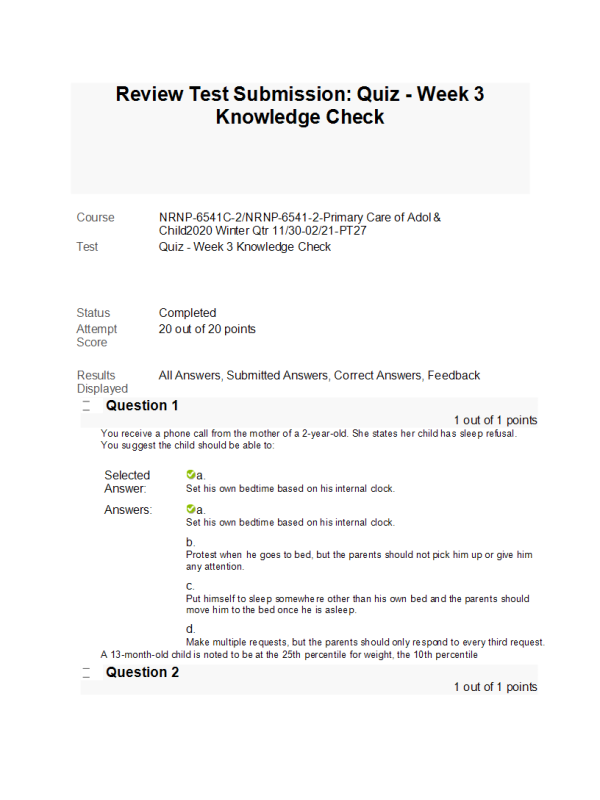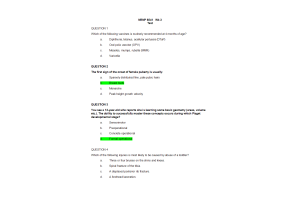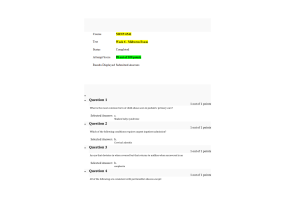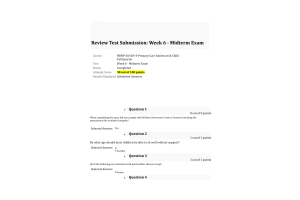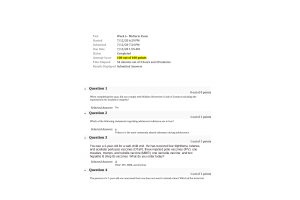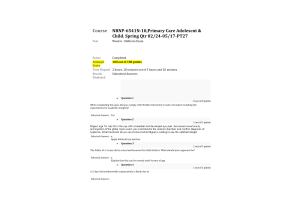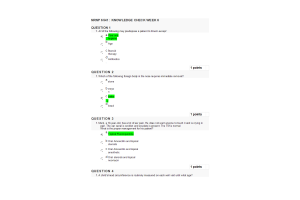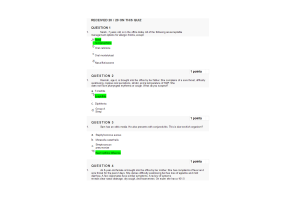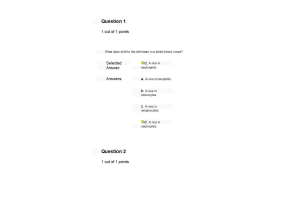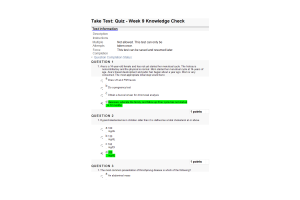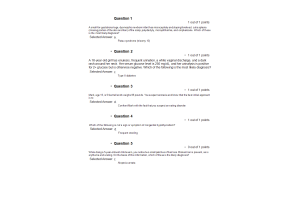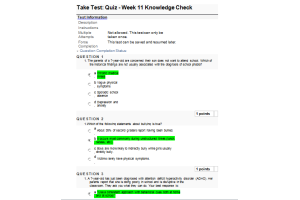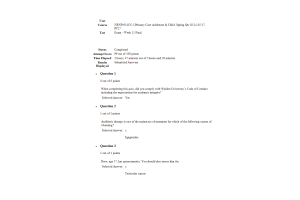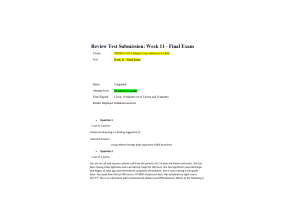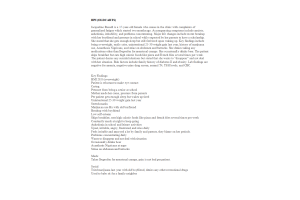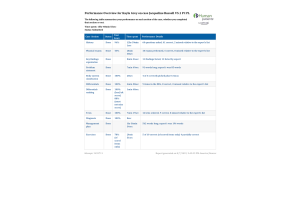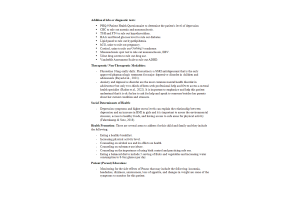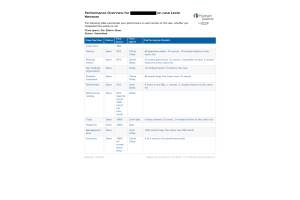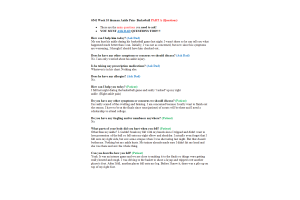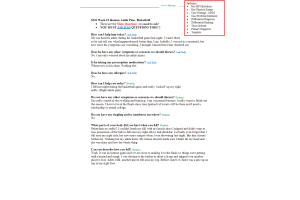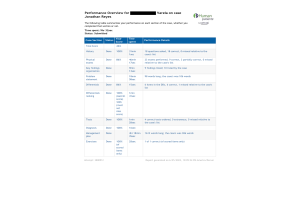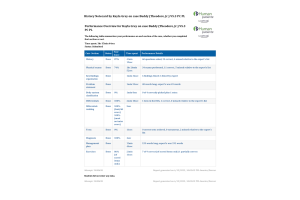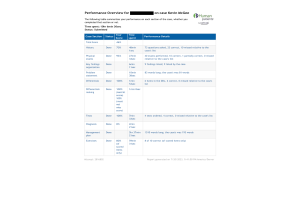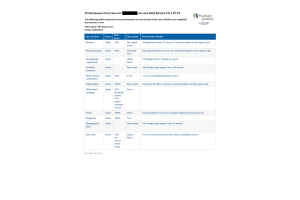NRNP 6541 Week 3 Quiz-Knowledge Check
- $20.00
- Question: You receive a phone call from the mother of a 2-year-old. She states her child has sleep refusal. You suggest the child should be able to:
- Question: A 13-month-old child is noted to be at the 25th percentile for weight, the 10th percentile for height, and less than the 5th percentile for head circumference. She was born at term. She was noted to have a small head at birth, to be developmentally delayed throughout her life, and to have required cataract surgery shortly after birth. She currently takes phenobarbital for seizures. Which of the following would most likely explain this child’s small size?
- Question: I like to use my pincer grasp that involves the ablitily to pick up a small object such as a raisin or piece of cereal with the thumb and forefinger, and that is mastered around what age?
- Question: I can walk well on tiptoes, my speech is 50% understandable, I know six body parts, but I cannot balance on one foot for 1 second. I am:
- Question: Appropriate anticipatory guidance for the parents of an 8-year-old girl includes
- Question: An expected milestone of a 4-year-old is the ability to
- Question: You see a 4-year-old for a well-child visit. He has received four diphtheria, tetanus, and acellular pertussis vaccines (DTaP); three injected polio vaccines (IPV); one measles, mumps, and rubella vaccine (MMR); one varicella vaccine; and two hepatitis B (Hep B) vaccines. What do you order today?
- Question: A 4-year-old believes there is more juice in a tall, thin glass than a shorter, wider one. The child has not yet achieved which of the principles of Piaget?
- Question: The first sign of the onset of female puberty is usually:
- Question: A 7-month-old male is found to have a spiral fracture of the femur that his father says he got by climbing onto a chair and then jumping off. Which of the following statements is true regarding this situation?
- Question: A breastfed infant is expected to have a lower incidence of which of the following?
- Question: You see a 3-year-old for a well-child visit. His mother informs you that potty training has been very easy because he “has an amazing internal clock. He falls asleep, gets hungry, and has bowel movements at the same time every day.” This describes which aspect of temperament?
- Question: The nurse practitioner role was initially established to
- Question: The mother of a 5-year-old informs you that her daughter cheats when playing board games. What is the best response?
- Question: Most children can independently get dressed by themselves by age:
- Question: You see a 13-year-old who reports she is learning some basic geometry (areas, volume etc.). The ability to successfully master these concepts occurs during which Piaget developmental stage?
- Question: You see a 7-year-old with complaints of "having accidents at night." Physical exam and history are unremarkable. Urinalysis, urine culture, and specific gravity are normal. His parents ask about the best treatment for this problem. The best response is
- Question: Parents bring their 6-month-old son to see you. He is symmetrically less than the 5th percentile for height, weight and head circumference. He was born at 30 weeks’ gestation and weighed 1000g. He was a planned pregnancy, and his mother’s prenatal course was uneventful until an automobile accident initiated the labor. He was ventilated for 3 days in the intensive care unit but otherwise did well without ongoing problems. He was discharged at 8 weeks of life. Which of the following is the most likely explanation for his small size?
- Question: Role-play with equipment during the course of the physical exam would be the most beneficial with which age group?
- Question: Medicaid provides health insurance coverage to
